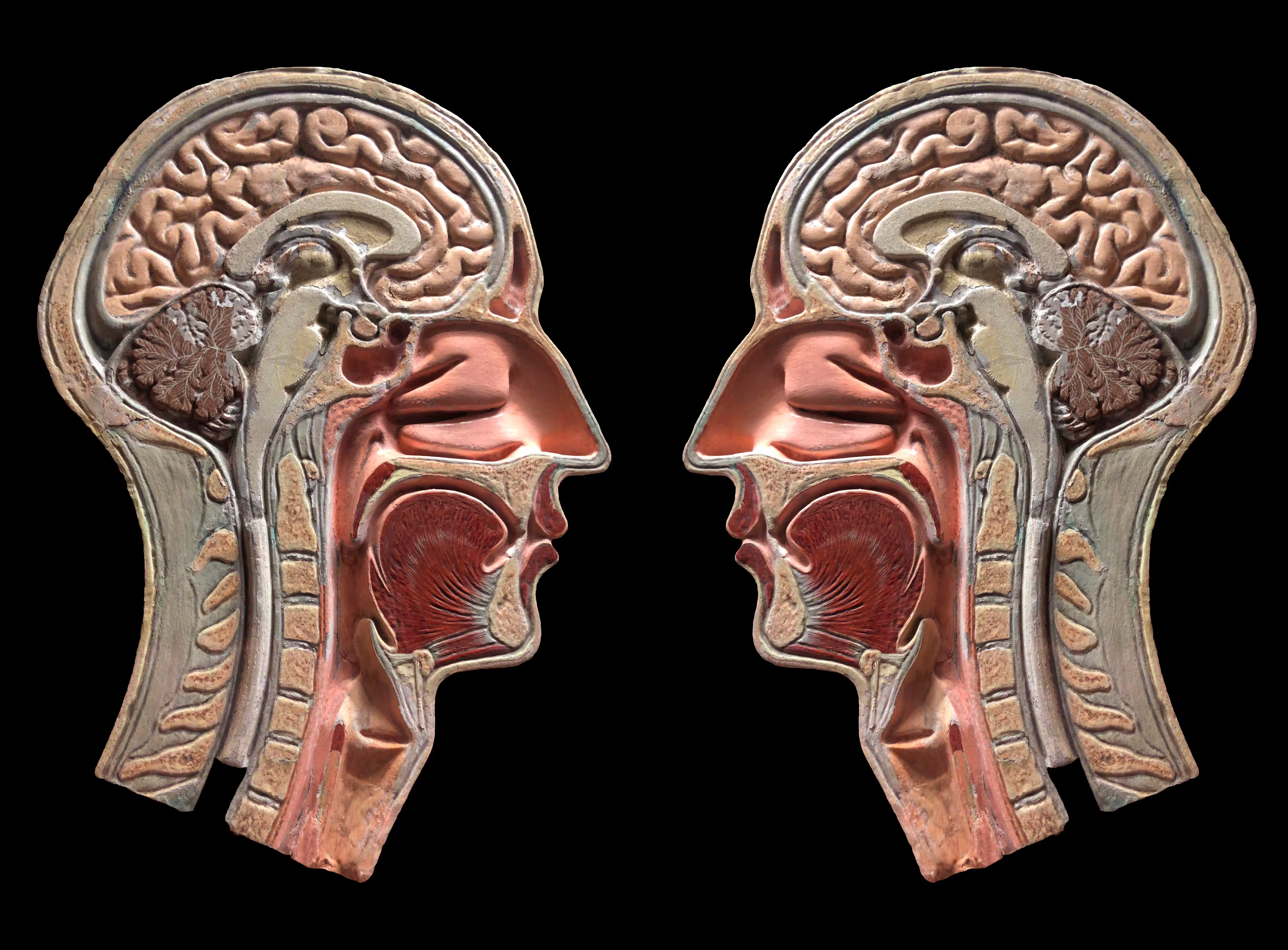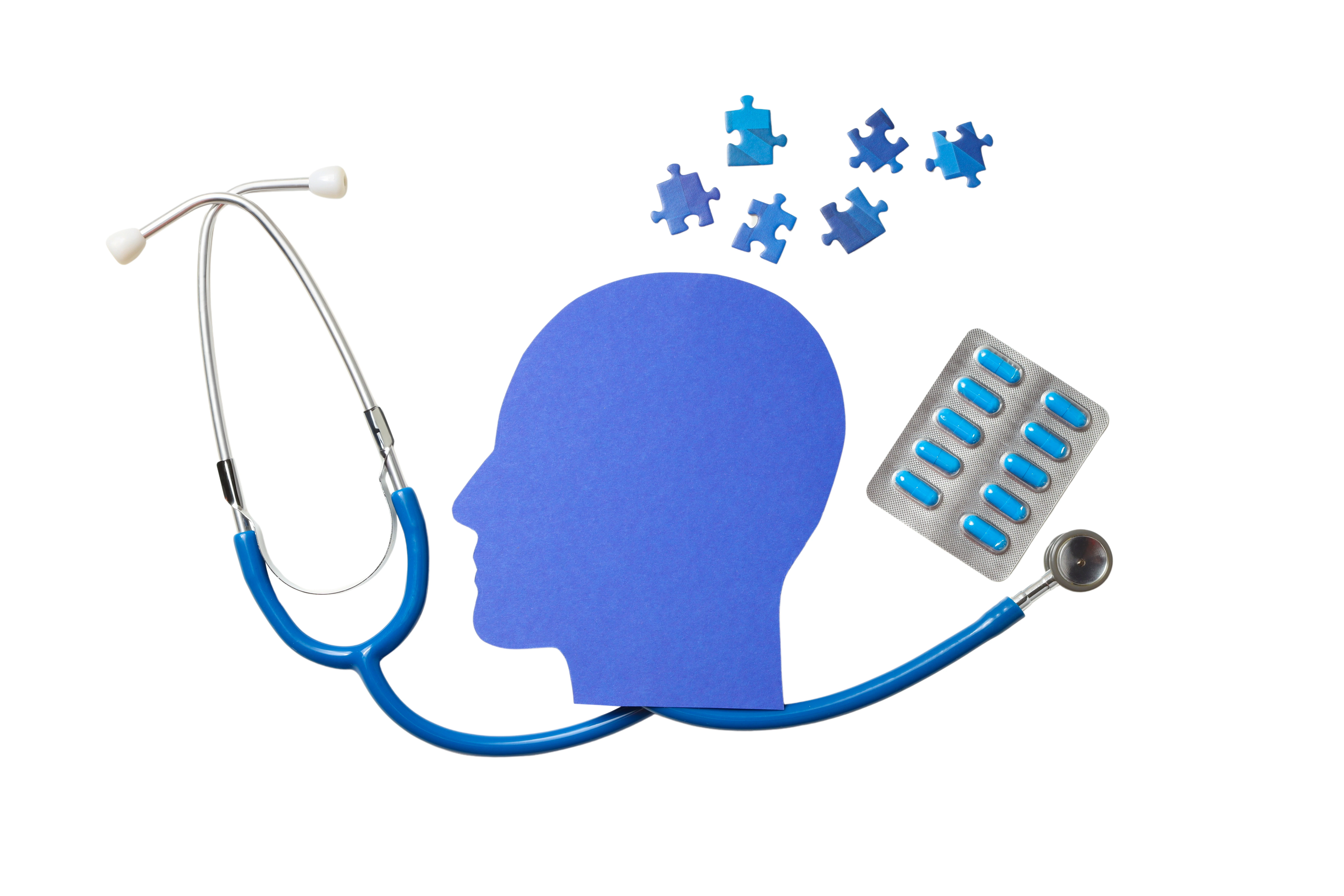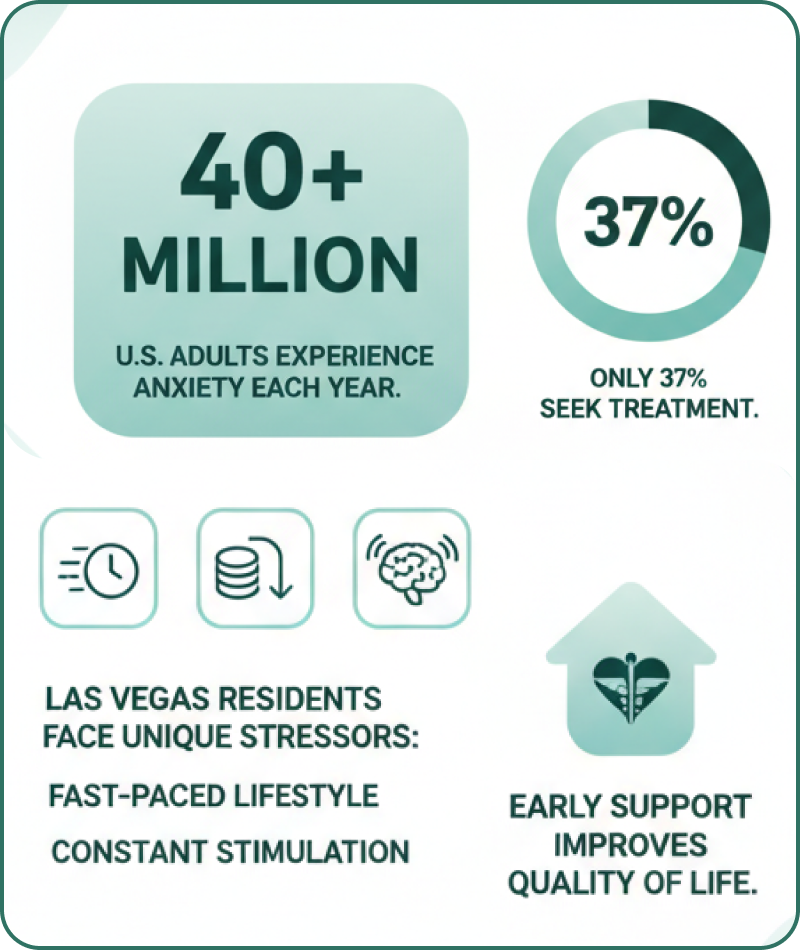Schizophrenia is a serious mental illness characterized by a profound disruption in cognition and emotion, affecting the most fundamental human attributes: language, thought, perception, and sense of self. At Halo Mental Health in Las Vegas, we provide a comprehensive treatment approach that addresses the complex needs of individuals diagnosed with schizophrenia. Our goal is to enable effective management of the condition, improving the quality of life for our patients.

Our Treatment Philosophy
Understanding schizophrenia requires a multifaceted approach, as it encompasses a range of symptoms that can significantly impact life. These symptoms are often categorized into three groups: positive symptoms, such as hallucinations, delusions or catatonic behavior. Negative symptoms can result such as the reduction in the ability to function normally; and cognitive symptoms, which affect thought processes. Our philosophy at Halo Mental Health focuses on tailored treatment plans that address these diverse symptoms while considering the unique needs of each individual.

Schizophrenia Statistics in Las Vegas
Schizophrenia is a severe and chronic mental health disorder that affects approximately 1% of the global population, including a significant number of individuals in Las Vegas. In 2023, it was estimated that over 2 million people in the United States live with schizophrenia, with urban areas like Las Vegas facing unique challenges such as limited mental health resources and heightened socioeconomic stressors. Characterized by symptoms such as hallucinations, delusions, disorganized thinking, and impaired functioning, schizophrenia can significantly disrupt an individual’s daily life, relationships, and ability to work, emphasizing the critical need for accessible and effective care.
In Las Vegas, advancements in treatments such as antipsychotic medications, cognitive-behavioral therapy (CBT), and psychosocial support programs have improved outcomes for individuals with schizophrenia. However, stigma and a lack of understanding about the disorder continue to be major barriers to diagnosis and treatment. Local mental health initiatives and community outreach programs are helping to bridge these gaps by raising awareness and providing resources for early intervention. By expanding mental health services and fostering a supportive environment, Las Vegas can better address the needs of individuals living with schizophrenia and their families.

Medication Management
Antipsychotic medications are the cornerstone of schizophrenia treatment. They are primarily used to manage psychosis, including delusions and hallucinations, as well as to prevent relapses. However, managing schizophrenia isn’t just about prescribing medications; it’s also crucial to monitor and adjust these treatments to minimize side effects and ensure adherence. Our team is dedicated to finding the right balance that maximizes efficacy while maintaining patient comfort.

Psychotherapy and Counseling
Psychotherapy is an essential element of treating schizophrenia, helping patients deal with the challenges of their mental illness. At Halo Mental Health, we offer various forms of psychotherapy, such as Cognitive Behavioral Therapy (CBT) which helps patients handle the psychotic symptoms more effectively by changing thought patterns. Supportive therapy and other specialized sessions are designed to improve communication skills and social interactions, empowering people with schizophrenia to lead more fulfilling lives.

Supportive Services
Beyond medication and psychotherapy, our supportive services aim to provide a comprehensive support system for our patients. This includes case management, skills training for daily living, and occupational therapy, which are crucial for dealing with negative symptoms and cognitive impairments. Family therapy is also available to educate and engage family members in the treatment process, enhancing the support network for individuals developing schizophrenia.

Integrated Care Approach
Schizophrenia often coexists with other mental illnesses, such as bipolar disorder, necessitating a holistic treatment approach. At Halo Mental Health, we integrate psychiatric and medical care to address all aspects of the patient's health. This integrated care model ensures that treatment for schizophrenia and any other co-occurring conditions is coordinated and effective, acknowledging the complex interplay between various mental health conditions.

Scheduling Your Appointment
Getting started with treatment at Halo Mental Health is straightforward. Contact us (702) 718-7353 to schedule your initial consultation, where a comprehensive evaluation will be conducted to tailor a treatment plan to your specific needs. During this visit, you can expect a warm and supportive environment as we embark on this journey together.
For Emergencies
Contact Clark County Mental Health Resources
FAQs
Our FAQ section provides answers to common questions about the symptoms of schizophrenia, the risk factors, and the treatment options available. It's an essential resource for both patients and their families to understand more about managing this complex mental disorder.
At Halo Mental Health, we are dedicated to improving the lives of people with schizophrenia through comprehensive and compassionate care. By addressing the full spectrum of schizophrenia symptoms and their impacts, we help our patients navigate their path to recovery with confidence and support.
What does a person with schizophrenia experience?
A person with schizophrenia typically experiences a range of complex symptoms that can significantly affect their perception of reality. These symptoms are often categorized into three main groups: psychotic symptoms (such as hallucinations and delusions), negative symptoms (including lack of motivation, reduction in spontaneous speech, and diminished social engagement), and cognitive symptoms (like impaired memory and difficulty in concentrating). Additionally, some may exhibit catatonic behavior, characterized by unusual postures, lack of movement, or resistance to movement. Environmental factors and genetic predisposition are believed to play a crucial role in the development of this psychotic disorder.
Can you live a normal life with schizophrenia?
Living a "normal" life with schizophrenia is challenging but possible with effective treatment and support. Management of the illness typically involves a combination of medication, psychotherapy, and comprehensive support services, which can greatly reduce the impact of symptoms. Many individuals with schizophrenia are able to pursue education, work, and relationships, although they may require ongoing support and accommodations to manage their condition.
What happens if you don't treat schizophrenia?
Untreated schizophrenia can lead to severe psychological, physical, and social consequences. Without treatment, the psychotic disorders associated with schizophrenia, such as severe delusions and hallucinations, can worsen. This deterioration can lead to safety risks, impaired functioning, and significant difficulties in social and occupational roles. Additionally, negative symptoms can become more pronounced, leading to profound social withdrawal and decreased quality of life. There is also an increased risk of co-occurring mental disorders, such as depression and anxiety.
Is schizophrenia a lifelong illness?
Schizophrenia is generally considered a lifelong illness, which requires ongoing treatment and management. While the severity of symptoms can vary and may improve over time, particularly with a comprehensive treatment plan including medication and psychotherapy, most individuals will need some form of long-term support. Early and sustained treatment following a schizophrenia diagnosis can lead to better overall outcomes, helping individuals manage symptoms more effectively and maintain a higher quality of life.


.avif)
.svg)
.svg)
.svg)
.svg)
.avif)
.svg)
.svg)
.svg)
.svg)
.svg)
.svg)
.avif)

.svg)
